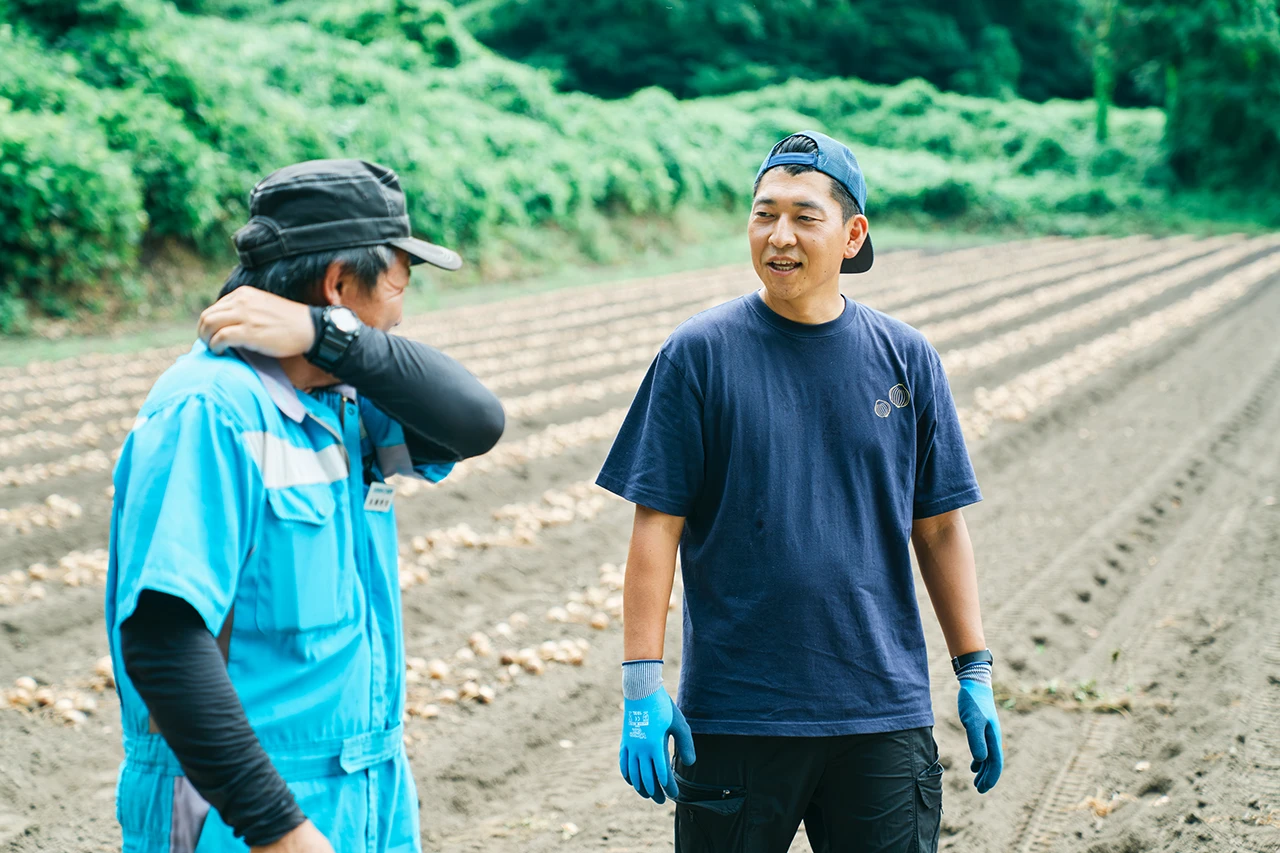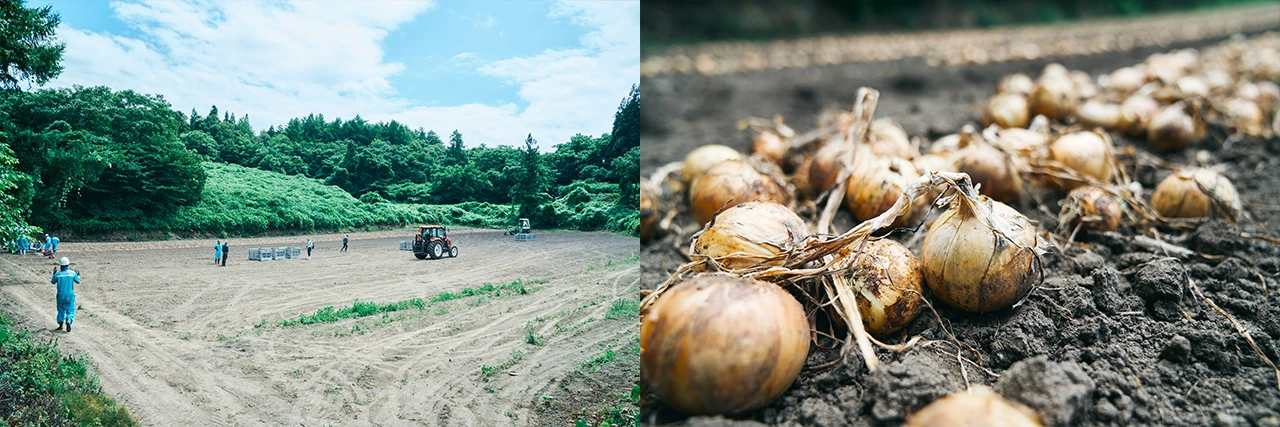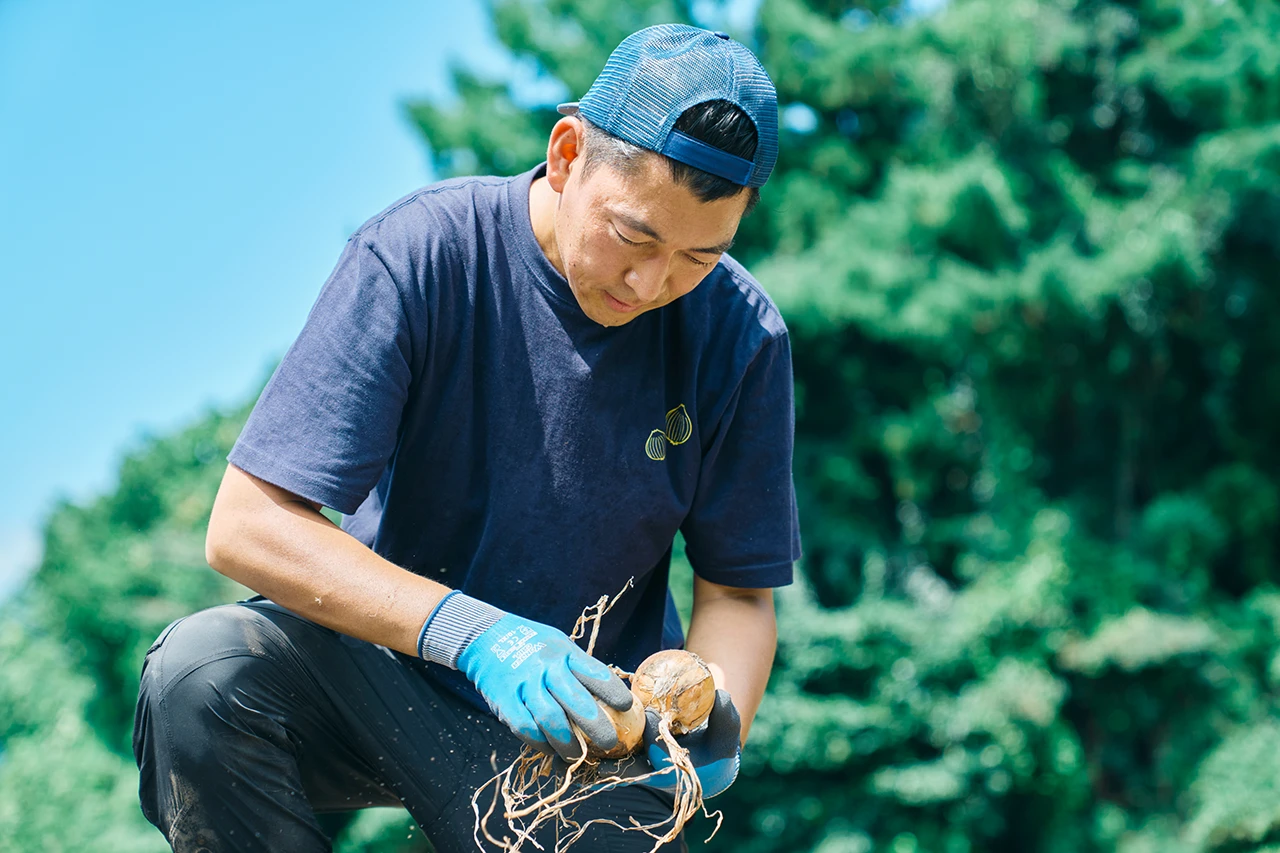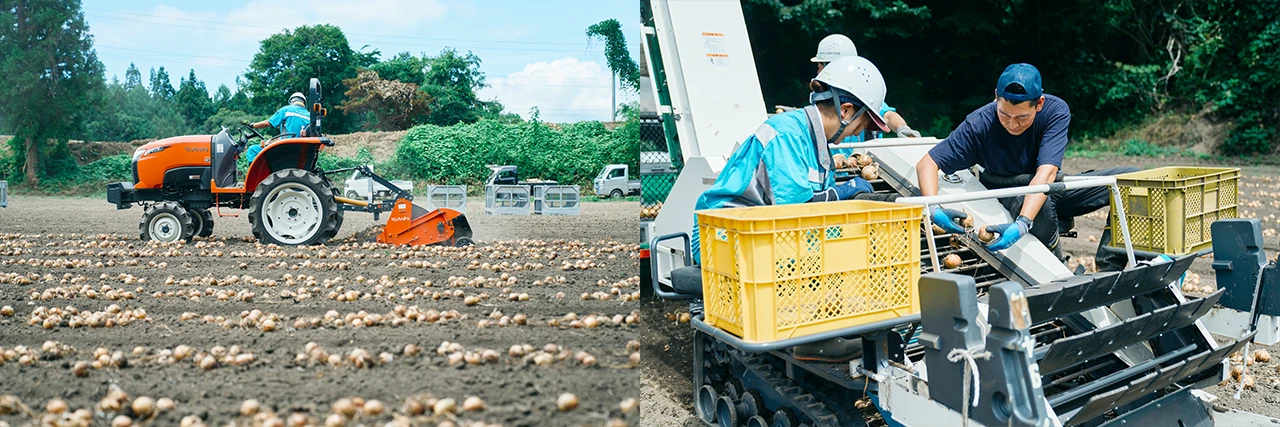Transforming Agriculture in Japan as a General Trading Company
Tamotsu Yoshikawa / Agriculture and Regional Business Development Office
(On secondment to Sojitz Nogyo Corporation)
Oct. 8, 2024
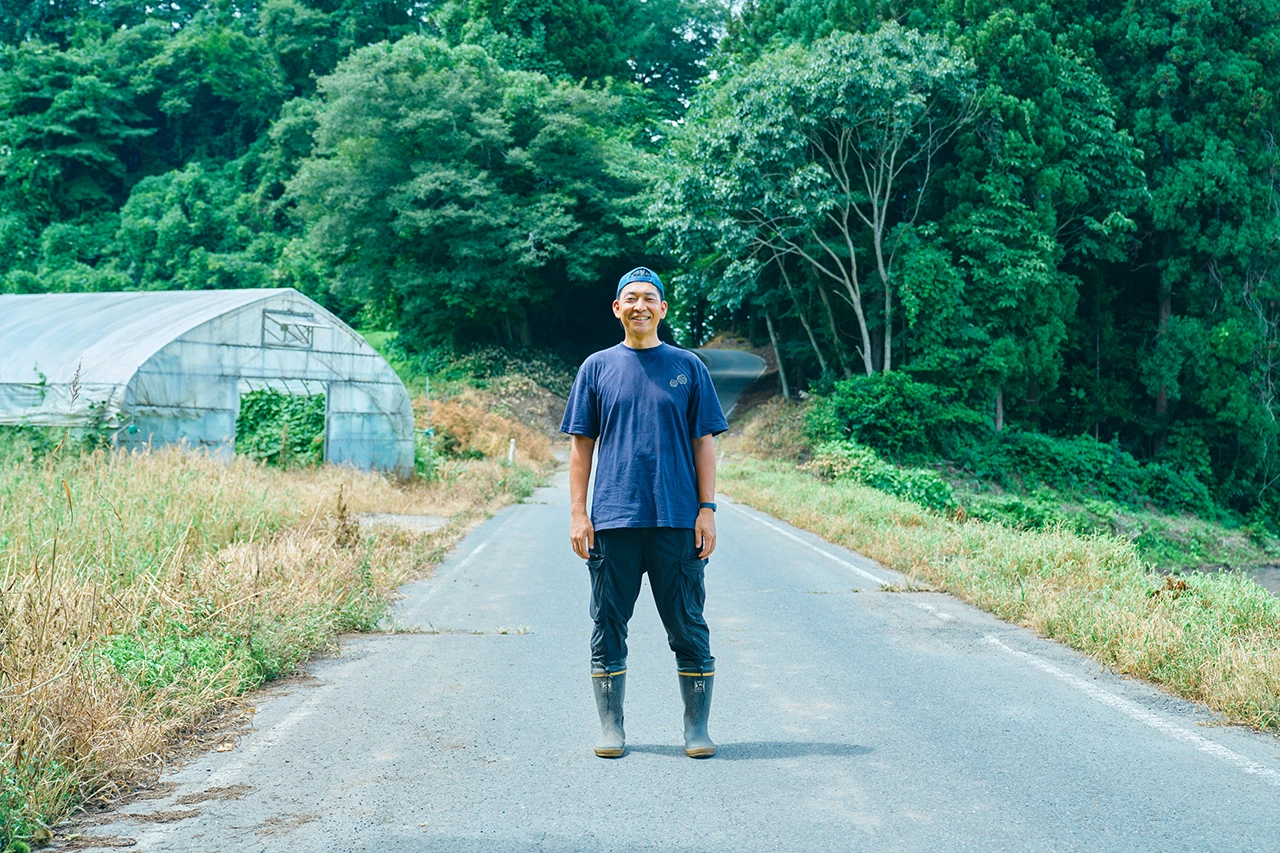
When I first joined Sojitz, I worked in the Accounting Department. Later, I elected to take part in the company’s language training program and studied Portuguese in Brazil. After returning to Japan, I transferred to a business division and had the opportunity to go on assignment to Germany. My career has taken me in a number of different directions, but I continued to find myself wanting to work directly on the ground again and take on a new challenge in a different environment back in Japan. During this time, I applied to the Hassojitz Project 2020, an in-house business contest that began in 2019 to encourage visionary and strategic thinking among employees. My Hassojitz team members shared a common interest in agriculture, and the idea for our business proposal was to create a coffee bean farm in Sri Lanka. I learned that before Sri Lanka was colonized by the Dutch and then Great Britain, the country had been known for coffee production as opposed to tea. My Hassojitz team was excited by the prospect of helping Sri Lanka become a major coffee producer once again. While our proposal was not selected as a finalist for the Hassojitz Project, my presentation caught the attention of my current manager, who asked me to join the Agriculture and Regional Business Development Office.
Our aim for the Tohoku region in Northern Japan is to start domestic onion production with regional partners and to create new companies that are rooted in local communities. Japan currently imports roughly 20% of its onions from China and other countries, which is equivalent to 200,000 to 300,000 tons of onion imports. We chose to focus on onions due to Japan’s high dependence on onion imports compared to other vegetables. In addition, onion production is concentrated in just one region in Japan with approximately 60% of Japanese onions grown in Hokkaido, which is Japan’s largest northernmost island.
Japan faces the risk of onion shortages, which would result in a dramatic decline in domestic distribution volumes. Global warming and other climate changes could result in poor onion harvests in the future. Similarly, imports to Japan could be affected if a major onion producer country shifted their exports from Japan to different country with significant population growth. Japan has long discussed the need to secure new production sites to grow onions domestically to mitigate risk through preemptive measures. Sojitz sees this challenge as an opportunity to diversify onion production in Japan by establishing new onion farms across multiple regions in Japan as one means of addressing risk. We selected the Tohoku region for onion cultivation as many prefectures in the Tohoku region share a similar climate to Hokkaido. In the future, we aim to ensure greater safety and reliability in production with data visualization of the onion production process and by obtaining Good Agricultural Practices (GAP) certification, which specifies standards for agricultural producers to realize sustainable farming. One of our missions for Sojitz’s agriculture businesses is to expand our GAP producer networks.
It is my first time stepping into an outdoor farming initiative and a first for Sojitz. It is also my first time working in the vegetable farming industry. Communicating with regional producers was a critical first step in the process, and we took the initiative to visit farmers in person to slowly expand our network. We started off by circling through the six prefectures in the Tohoku region and asking farmers if they were currently growing onions or considering onions as a future crop.
In the Tohoku region, rice is one of the top crops and there are many rice plantations. However, with Japan’s aging population and a decline in new farmers, Japan is seeing a rise in abandoned farmland. We asked producers if they would be interested in converting their rice plantations to grow onions—a highly profitable vegetable— with Sojitz’s support. Additionally, we explained the merits of improving soil health through a field crop rotation that incorporates onions. Onions are a lightweight crop and with existing harvesting machinery, it is possible for older farmers to grow onions with minimal physical toll. Onions are also a vegetable with an extended shelf life, and we have spread the word in regional communities about onions as a great crop that can be sold in winter, which is the offseason for farming.
During our talks with local farmers, we connected with a group of producers in Aomori Prefecture. These Aomori farmers were experienced with vegetable cultivation technologies and were willing to try Sojitz’s proposed ideas for onion cultivation. We are currently working towards our goal of establishing a new company after setting up a business base in Aomori. At the beginning of our journey, there was a great deal we did not know about the farming business that made the process was difficult. In the end, it was worth taking the time to start a farming business rooted in the local community. Thanks to my frequent road trips across the Tohoku region, my driving skills have improved greatly since I joined Sojitz Nogyo Corporation. I have also begun to learn how to use different agricultural machinery.
For a new company to succeed, it is important that production and sales go hand in hand. While we have gained a clearer outlook on production, our sales network still needs to be expanded further. This project has great social value, and it is essential that we build a supply chain that connects upstream and downstream businesses as we generate new sales methods and business models that leverage our unique capabilities as a general trading company.
Sojitz is also actively working to improve agricultural efficiency through digital transformation (DX) initiatives. For example, AI technology can be used for onion sorting and grading machines. Onion sorting generally requires manual labor, and it has become increasingly difficult to secure farm laborers for the job. By using deep learning, onion sorting and grading machines can automatically identify onions with internal spoilage and remove non-standard crops from shipments.
Our primary goal is to get our new company safely up and running. We have completed the necessary applications, and next year we will finally begin onion production. In Japan, to be recognized as a vegetable production site, farms must have a crop acreage of over 20 hectares, which is a benchmark goal for us.
Farming is an industry deeply rooted in local communities. By establishing a new agricultural company, we strive to generate energy in agricultural communities, promote regional revitalization, and create jobs. Leveraging Sojitz’s expertise and know-how as a general trading company, we will continue to help Japan’s farming industry evolve and to make Sojitz’s agricultural businesses a success.

